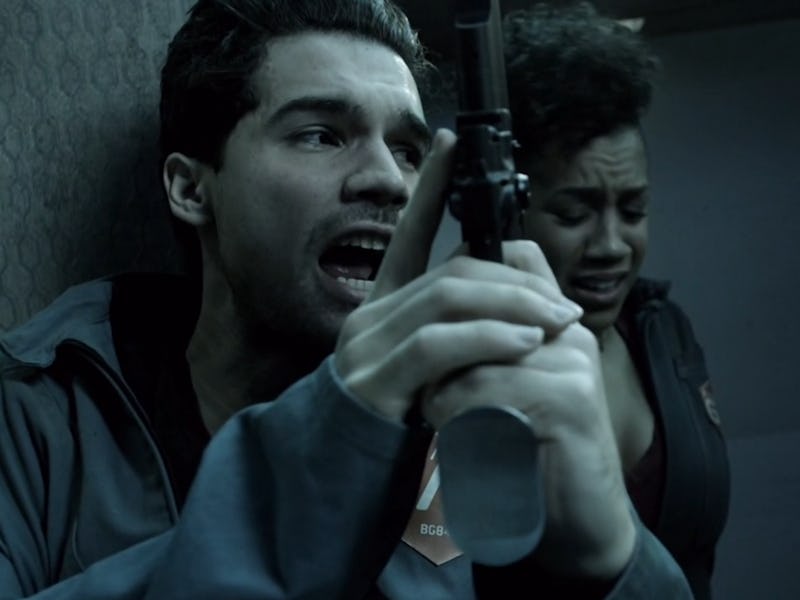'The Expanse' Goes for Classic Sci-Fi in Setting Up Its Upcoming Climax
"Salvage" takes a break from the gritty and political in favor of a classic horror thriller episode.

The Expanse is a show that assumes full commitment from its viewers. An intensely-serialized 10-episode season doesn’t leave much room for random drop-ins. It has largely succeeded at being compelling enough to maintain attention, but its highly serialized nature has been a consistent barrier for entry.
But The Expanse has also managed to achieve a diversity of episodic tones and structures, as well, which is no small feat. As tempting as it would be to say that it is a single story told over 10 chapters, this is still television, and television consists of distinct entries. The distinction is sometimes more obvious than others, as is evident in this third episode, “Salvage,” which adopts an interrogation structure. In “Salvage,” The Expanse most directly makes temporary shifts into other genres in order to support its main story.
“Salvage” turns into a horror thriller for the bulk of its run, utilizing the tropes of those genres in order to build tension. This is critical for a story that, until now, hasn’t been very clear about where it is headed. But as the first season nears its climax, clarity is no longer optional. The episode adopts a formal approach to this exposition, while still leaving some mysteries intact for the finale.
Most of the episode is devoted to the survivors of the Canterbury discovering the ship that destroyed their base, and exploring it as a sense of dread builds around them and in turn the viewer. It’s the sort of dread that comes from our familiarity with horrific science fiction like Alien/Aliens — the knowledge that something has gone horribly wrong and the characters you love are one step behind.
The Expanse basks in this tension, letting it rise, come to a temporary resolution — with the Rocinante’s crew realizing that there was some kind of organic entity feeding on the ship’s power — and then letting it go. The real catharsis, occurs on Eros station, with the U.N. hit squad finding Holden.
Wes Chatham as Amos in 'The Expanse'
This is the sort of turn few television series can manage. Here, there are enough balls in the air and the show has enough confidence in its ability to manage that complexity. The execution is not flawless; everything still seems to take too damn long and characters like Miller and Chrisjen feel extraneous, which oddly enough, works in the show’s favor, letting air in with some scenes that may not otherwise entirely fit the premise.
The episode’s best scene — the flophouse confrontation — escalates that disquietude into an action spectacle that properly sets up the stakes for next week’s two-hour finale. All in all, The Expanse continues to prove itself worthy of the unquestionable commitment it demands of its viewers.